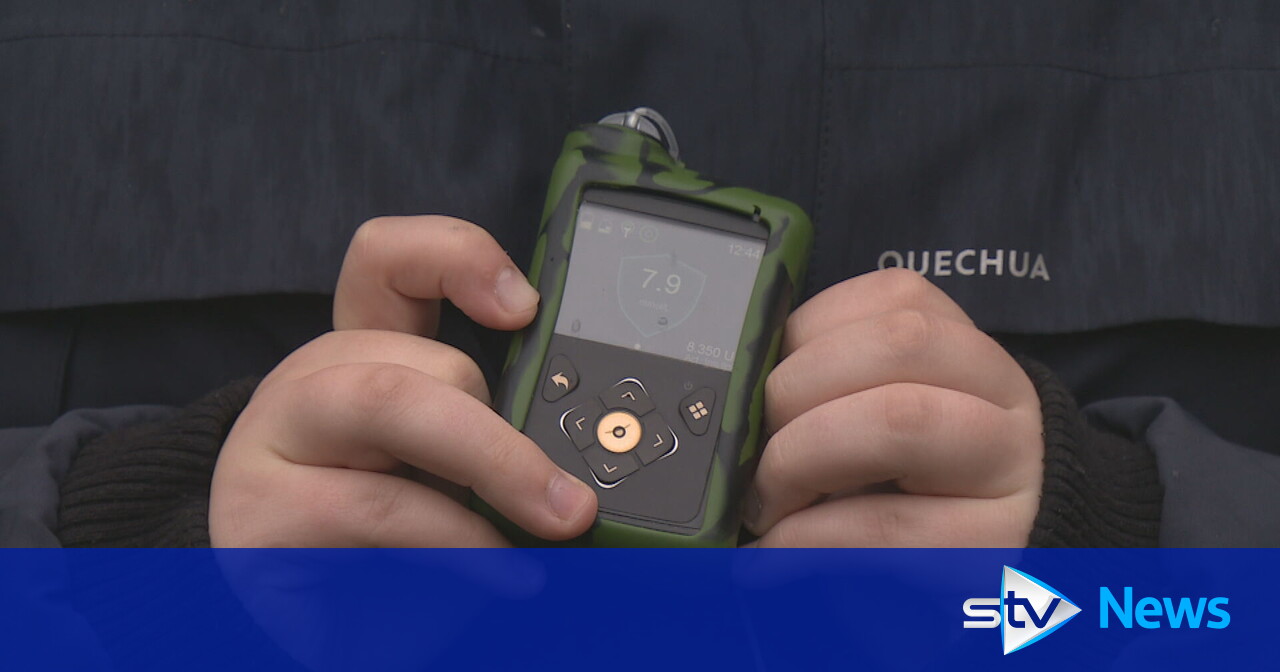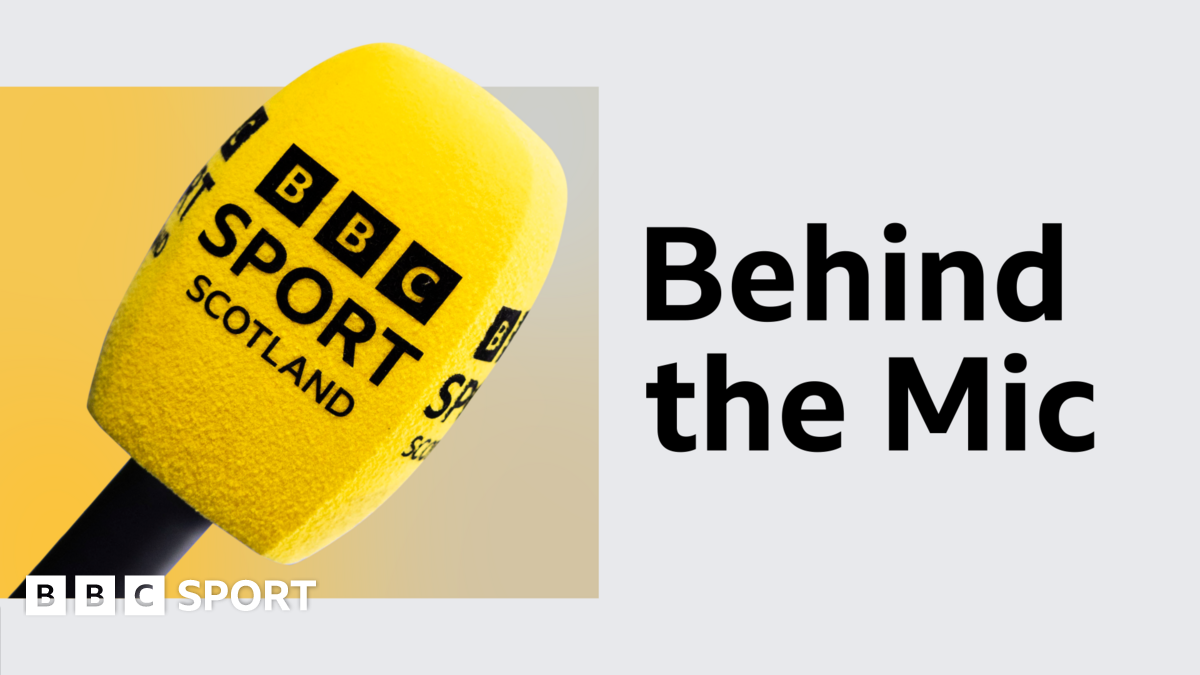Tech
Nearly 3,000 Scots with diabetes waiting for insulin pumps on NHS, figures show

Nearly 3,000 Scots with type 1 diabetes are waiting for insulin pumps from the NHS to manage their symptoms, new figures show.
Figures obtained by Scottish Labour show that 2,918 patients are still waiting for the “life-changing” devices across Scotland’s health boards.
In the past, children and adults with type 1 diabetes had to monitor their blood sugars on an hourly basis and inject insulin multiple times during the day and night. Insulin pumps now do this automatically.
Children with type 1 diabetes and adults who have severe symptoms, even with attempts to manage the condition, are eligible for an insulin pump provided by the NHS.
Nearly 900 are waiting in Lothian alone, with some Scots waiting over five years for an insulin pump.
There were 38 people who got a pump last year in Glasgow, while in 2022, 15 did.
Scottish Labour urged the SNP to speed up the rollout of the technology.
Jackie Baillie, Scottish Labour’s health spokesperson, said: “Families living with type 1 diabetes must not only grapple with a life-altering condition but with the challenge of constant anxiety and sleepless nights.
“These are patients the NHS has identified as in especial need of pumps, yet they are not getting the assistance they need.
“In 2024, we have the technology to support people to live with type 1 diabetes, but it’s up to this SNP government to speed up the rollout of this vital technology so Scots with type 1 diabetes can work, study and spend time with their families without constantly worrying about their health.”
Scots living with type 1 diabetes described having a pump as “as massive boost to my mental health” and “the closest thing I have to a real-life, functioning pancreas”.
‘It’s a massive boost to my mental health’
Shelley Murray, who has type 1 diabetes, was forced to stop running due to the risk of her blood sugar suddenly dropping, but after getting a pump she has started doing the sport she loves again.
She is now on the waiting list for a closed-loop system which uses sensors to automatically tell the pump how much insulin to inject.
Shelley said: “Having type 1 diabetes without tech meant losing sleep due to constantly manually monitoring my blood sugar levels throughout the night as well as stopping the sports that I love.
“I feel so free now I have an insulin pump – not only can I run again, but I am not covered in bruises from multiple daily injections and it’s been a massive boost to my mental health.”
Alison Templeton, who has had a pump for 15 years and a hybrid closed-loop system for three months, said: “My pump is part of me, the closest thing I have to a real-life, functioning pancreas.
“Every person with Type 1 diabetes should be offered a pump – it gives you freedom away from injections and overall improved blood glucose stability and consistency, and it’s the first step towards a fully closed-loop system.
“Thanks to this technology, I’ve had more quality sleep in the last three months than I’ve had in the last 40 years.
“The Scottish government needs to reduce waiting lists – people’s well-being and health depend on it.”
 Handout
HandoutFraser, a business owner in Edinburgh, was diagnosed with type 1 diabetes as a result of cancer treatment.
He was recently told he may face a seven-year wait for an insulin pump, which he hopes to use as part of a closed-loop system.
Fraser said: “Having diabetes means you must constantly calculate how much insulin you need, and getting the insulin dose too high while doing something as simple as exercise or eating a pizza can send you into hypo (very low blood sugar), which, for me, is like having brain fog, white flashes in your eyes and jelly legs all at once.
“One time I took my son to the park to play football and before the match had even started I had to sit down on the grass and eat sugar as my blood sugar was too low to stand.
“Before I had diabetes, I used to put my head on the pillow and be out like a light, but now I wake up regularly, often for up to two hours in a night.
“There are so many factors involved in calculating how much insulin to take – if I don’t get the insulin calculation exactly right, it can be scary – I once ended up crawling across the room to get sugar in the middle of the night.
“Although it’s exhausting, I try to manage my diabetes effectively because I know that failing to do so will lead to chronic health problems in later life.
“If the government makes more pumps and closed-loop technology available, it will help people like me and save money in the long term because we can all live healthier lives.”
A Scottish Government spokesperson said: “We have significantly expanded access to diabetes technologies with nearly 300 adults receiving insulin pumps between the beginning of June and the end of September this year.
“An investment of up to £8.8m this year also means that children or young people will have access to this life changing technology and it will also support a major increase in the provision of technologies for adults.
Around 60% of children with diabetes in Scotland already have access to an insulin pump and we have invested over £29m since 2016 to specifically support access to insulin pumps.”
Number of patients waiting for an insulin pump for type 1 diabetes
| Health Boards | Number waiting | Longest wait in years |
| NHS Ayrshire & Arran | 81 | 1 year and 1 month |
| NHS Borders | 33 | 1 year and 9 months |
| NHS Dumfries & Galloway | 152 | 6-12 months (paediatric) and 5 years and 7 months (adult) |
| NHS Fife | Information not provided | |
| NHS Forth Valley | 150 | 1 year and 1 month |
| NHS Grampian | 0 | No waiting list. |
| NHS Greater Glasgow & Clyde | 744 | 2 years (paediatric) and 3 years (adult) |
| NHS Highland | 132 | 2 years and 11 months |
| NHS Lanarkshire | 446 | 5 years and 5 months |
| NHS Lothian | 896 | 2 years and 7 months |
| NHS Orkney | 27 | 4 years |
| NHS Shetland | 20 | 2 years |
| NHS Tayside | 230 | Not held |
| NHS Western Isles | 7 | 1 year |
Michelle Carr, Chief Officer, Acute Services, NHS Lothian said: “All health boards in Scotland, including NHS Lothian, are under significant financial pressure. Despite this and the challenges of providing services for the second largest residential population in Scotland, we are actively working to address the high numbers on our waiting list for insulin pumps.
“We have redesigned our services to enhance support for our patients, particularly those at most risk and those with complex needs. We remain committed to prioritising patient care and delivering the best outcomes.”
An NHS Greater Glasgow and Clyde spokesperson said: “Like other health boards across Scotland, NHSGGC is providing services within a challenging financial framework.
“There are more than 6,000 adult Type 1 Diabetes patients being supported by NHSGGC to manage their condition.
“Insulin pumps have proven to be an effective aid and have become a mainstream method of diabetes management in recent years. Currently 16.2 per cent of NHSGGC’s adult Type 1 diabetes patients use these pumps against the comparable national average of 17.2 per cent.
“Following an internal spending review, and with financial support from the Scottish Government, NHSGGC plans to offer the insulin pumps and Continuous Glucose Monitoring (CGM) equipment to around 300 more adult patients in this financial year. When used with the pumps, CGM equipment creates hybrid closed loops systems which are automated.
“Furthermore, around 100 adult patients who already have insulin pumps will be offered CGM equipment.”
Follow STV News on WhatsApp
Scan the QR code on your mobile device for all the latest news from around the country










